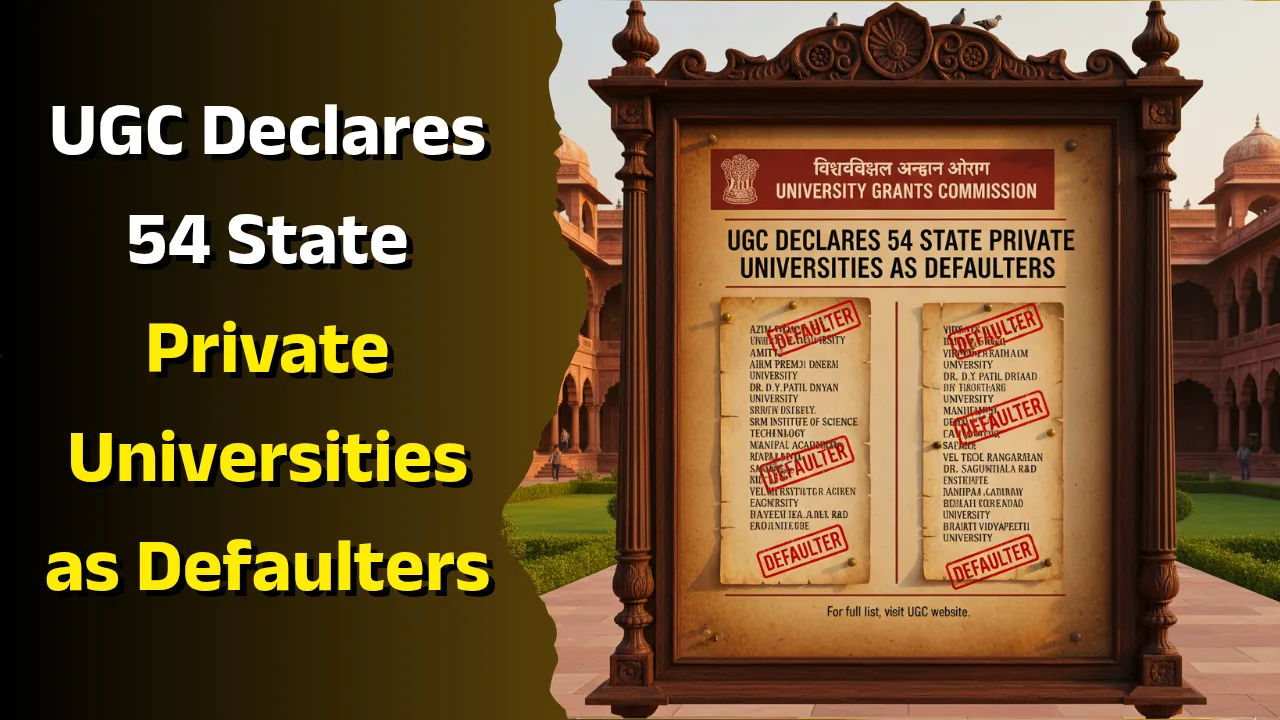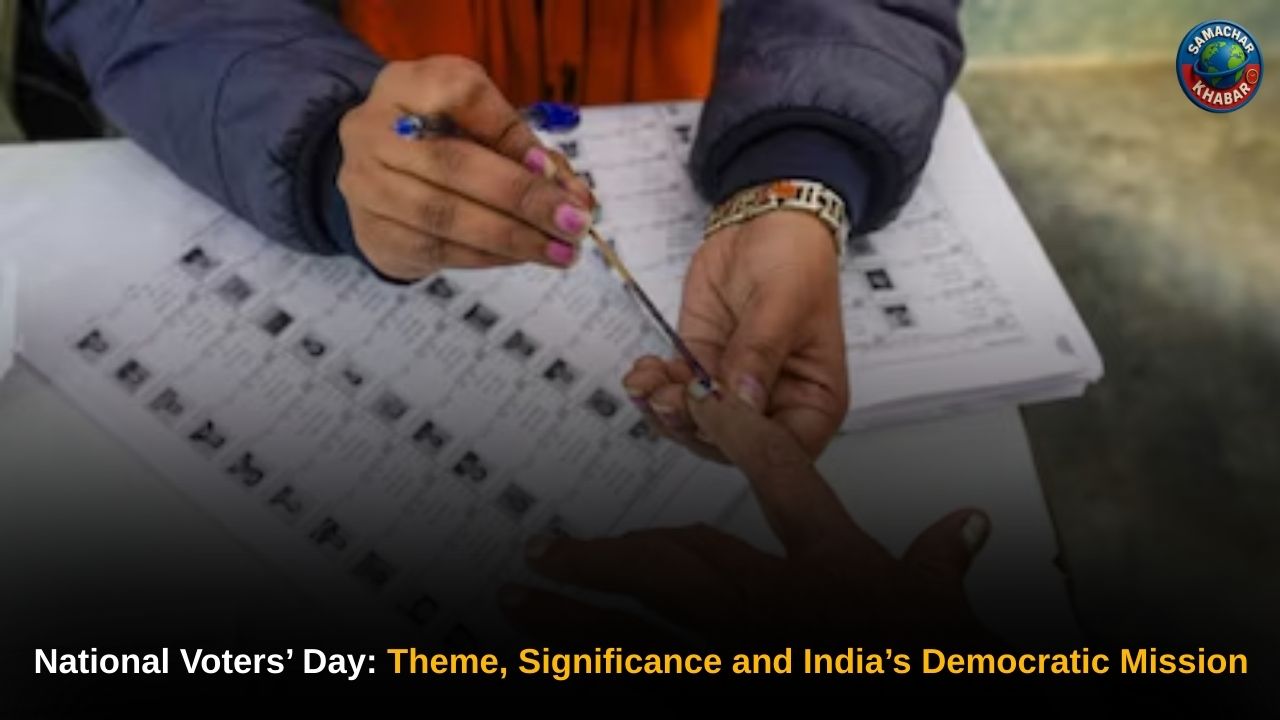In a move that has sent ripples across the Indian higher education landscape, the University Grants Commission (UGC) has declared a staggering 54 state private universities as defaulters. This list, which includes prominent names like Azim Premji University (Bhopal campus), Amity University (multiple campuses including Bihar and Punjab), and Dr. D.Y. Patil Dnyan Prasad University (Maharashtra), has raised significant concerns among prospective students, current enrollees, and educators alike.
The primary reason for this decisive action is the universities’ failure to comply with mandatory public self-disclosure norms, a fundamental requirement for transparency and accountability in the education sector. This development underscores the UGC’s commitment to tightening its oversight and ensuring that all Higher Education Institutions (HEIs) operate with complete openness, ultimately protecting student interests.
If you are a student, a parent, or an academic stakeholder, understanding the gravity of this situation and checking the full list of UGC defaulter state private universities is essential for making informed decisions.
Why Were These Universities Declared Defaulters?
The UGC’s action is rooted in the failure of these institutions to adhere to the statutory requirements under Section 13 of the UGC Act, 1956, specifically concerning public self-disclosure. The commission issued the Public Self-Disclosure by Higher Education Institutions, 2024 guidelines mandating universities to openly share critical information on their websites.
The Core Reason for Non-Compliance
Despite receiving multiple reminders via email and through online meetings, these 54 universities allegedly failed to:
- Submit Detailed Information for Inspection: Universities were required to submit comprehensive reports and supporting documents, duly attested by the Registrar, to the UGC for inspection purposes.
- Ensure Public Accessibility of Data: A key requirement was to upload the mandated information—including faculty details, fee structure, and governance—on their official website’s homepage, accessible to the public without any registration or login. This is a corner-stone of the new transparency drive.
UGC Secretary Manish Joshi highlighted the importance of these disclosures, noting, “The information disclosed on the website should be easily accessible to everyone, on the home page, without any need for registration or login. Additionally, there should be a ‘search’ facility available for easy navigation.” The failure to meet this simple yet vital requirement is the crux of the issue.
Also Read: Qs World University Rankings 2026: Top 5 Universities in the World
Impact and Implications for Students and Parents
The “defaulter” tag is not the same as being declared “fake,” but it is a serious official warning. It raises red flags about the administrative transparency and operational compliance of the institution.
What the Defaulter Status Signals
- Lack of Transparency: The refusal to publicly disclose essential data suggests a potential lack of administrative accountability. Students and parents rely on this information to compare institutions, verify faculty qualifications, and understand the true cost and quality of education.
- Regulatory Risk: The defaulter status is the first step in a punitive process. The UGC has warned that “further action could follow if the institutions continue to ignore the instructions,” which could include financial penalties or other sanctions.
- Informed Decision Making: For any prospective student, an institution on the defaulter list should be a signal to proceed with extreme caution. As per a 2024 analysis, the lack of complete and accessible public data is the biggest deterrent to student trust in private HEIs.
Actionable Insight: Before enrolling, every student should check if their university of choice is listed and then compare it with institutions that fully comply with UGC norms.
Full List of UGC Defaulter State Private Universities (A Snapshot)
The 54 universities span across 18 states, with Madhya Pradesh leading the count with 10 institutions. This list is fluid and subject to change based on compliance. The most prominent institutions declared as defaulters include:
| State | Featured University Names on Defaulter List |
|---|---|
| Madhya Pradesh | Azim Premji University (Bhopal), Aryavart University, J.N.C.T Professional University, Shubham University |
| Bihar | Amity University (Patna), Dr. C.V. Raman University, Sandip University |
| Maharashtra | Alard University, Dr. D.Y. Patil Dnyan Prasad University |
| Gujarat | Gandhinagar University, J.G. University, Team Lease Skills University, Transstadia University |
| Jharkhand | Amity University (Ranchi), AISECT University, Sai Nath University |
| Punjab | Amity University (Mohali) |
| Sikkim | Medhavi Skills University, Sikkim Alpine University, Sikkim Global Technical University |
| Uttar Pradesh | Agrawan Heritage University, Monad University |
Note: For the complete, officially verified list, always refer to the UGC’s official notification, which you can typically find on the official UGC website.
The Road to Compliance: What Happens Next?
The UGC has given a stern warning to all the defaulting institutions to take immediate corrective steps. The mandate is clear:
- Immediate Upload: The complete set of public disclosure data must be immediately uploaded and made easily accessible on the university’s official website.
- Document Submission: All supporting documents must be submitted to the UGC for verification.
The future course of action will depend entirely on the institutions’ response. Non-compliance could escalate to official inspections, public hearings, and potentially the withdrawal of certain privileges. This ongoing monitoring reflects a larger push towards accountability, a trend also seen in warnings issued to 23 institutions earlier this year for not appointing ombudspersons.
Upholding Educational Standards
The UGC’s declaration of these 54 state private universities as defaulters, including high-profile names like Azim Premji University, Amity University, and Dr. D.Y. Patil Dnyan Prasad University, is a landmark moment. It is a powerful signal that the regulatory body will no longer tolerate administrative opaqueness. Transparency is not optional; it is the bedrock of quality education.
- For Students and Parents: If you are considering any of the universities mentioned, use this information to launch a deeper investigation. Demand to see the public disclosure information. Trust, but verify.
- For Defaulter Universities: Your primary focus must be immediate, complete, and verifiable compliance with the UGC’s norms. Rebuild trust through radical transparency.
FAQs
Q1: What exactly does it mean to be a ‘defaulter’ as declared by the UGC?
A: Being declared a ‘defaulter’ means the university has failed to comply with specific mandatory regulations set by the UGC, primarily the requirement under Section 13 of the UGC Act, 1956, to submit and publicly disclose detailed administrative and academic information on their website. It is a formal warning and a sign of non-compliance, but it does not mean the university is declared ‘fake’.
Q2: Is the education degree from a defaulter university still valid?
A: Yes, for now, the degrees awarded by these universities remain valid as they are UGC-recognized institutions. The defaulter tag is for administrative non-compliance (lack of transparency), not for a lack of recognition. However, continued non-compliance could lead to more severe punitive actions in the future.
Q3: Why are well-known names like Azim Premji University and Amity University on the defaulters list?
A: The defaulter status is not a judgment on the academic quality but purely on regulatory compliance and transparency. Even well-known institutions can be flagged if their specific state-private university branch fails to submit the mandatory documents or refuses to make the required self-disclosure information easily accessible on their website’s home page.
Q4: What information were these universities required to disclose publicly?
A: The mandatory public self-disclosure includes comprehensive details about the institution, such as:
- Faculty profiles (qualifications, experience).
- Details of courses and programmes offered.
- Infrastructure and facilities available.
- Fee structure for all courses.
- Governance structure and financial details.
Q5: What should I do if I am a student currently studying at one of these 54 universities?
A: Current students should not panic, but they should take an active interest. You should monitor your university’s website for the immediate compliance updates. You can also write to the Registrar’s office, asking for an assurance of immediate compliance with UGC norms. The situation demands transparency, and current students have a right to demand it.


















